Post-meal tips to help reduce heartburn
Heartburn is often worse after meals. To reduce this symptom, you should pay attention to food, rest and some other factors.
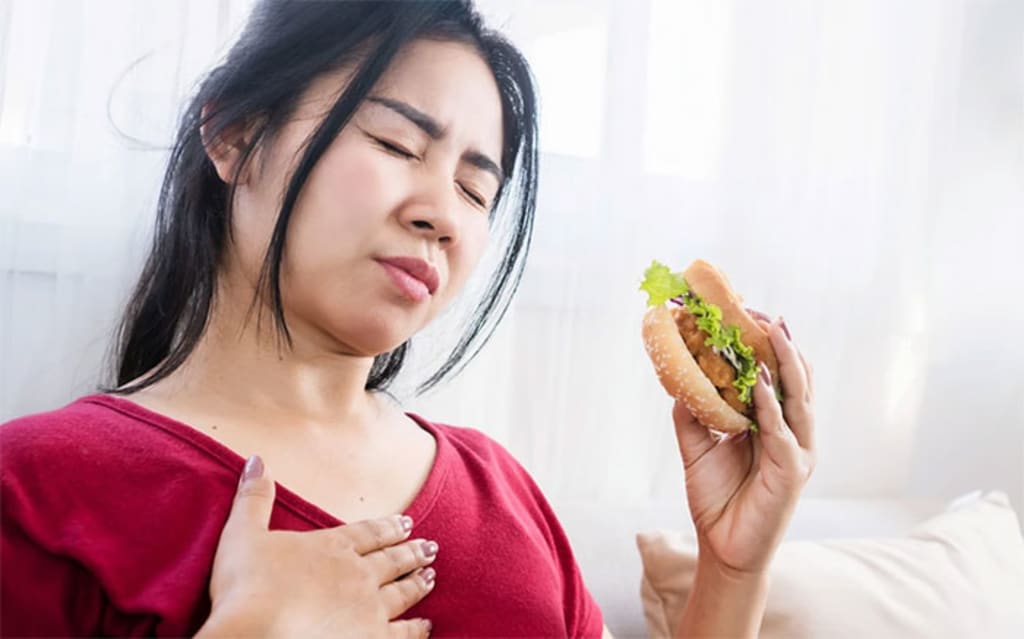
Heartburn is common, especially after eating spicy food or a large meal. About 1 in 10 adults experience heartburn at least once a week. However, if you experience heartburn more than twice a week, you may have a more serious condition called gastroesophageal reflux disease (GERD) .
1. Why do you get heartburn after eating?
When you swallow food, it travels down your throat and through your esophagus to your stomach. The act of swallowing causes the muscle that controls the opening between your esophagus and stomach, called the esophageal sphincter, to open, allowing food and liquid to move into your stomach. Otherwise, the muscle stays closed.
If this muscle doesn't close properly after you swallow, stomach acid can flow back up into your esophagus. This is called "reflux." Sometimes, stomach acid flows back up into the lower part of your esophagus, causing heartburn.
When food is swallowed and the esophageal sphincter does not close properly, it can cause heartburn.
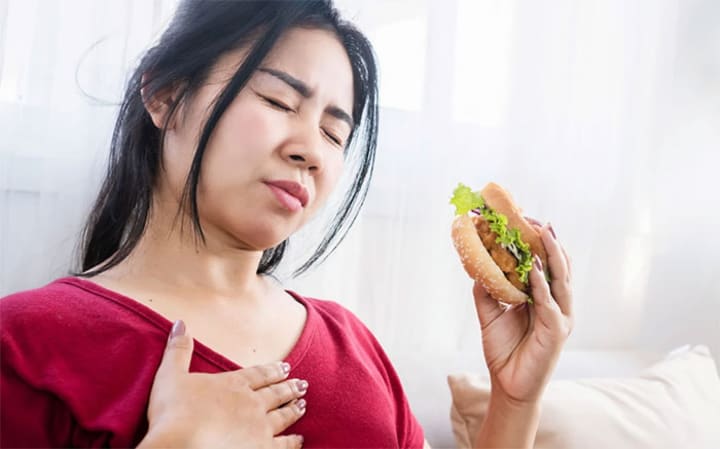
2. Some tips to help reduce heartburn after eating
Heartburn after eating often causes discomfort and irritation in the throat. To reduce heartburn symptoms after eating, you can refer to some measures such as:
Sit for at least 30 minutes after meals
"Tight stomach, sagging eyes" - after meals we often feel sleepier. However, if you sleep immediately after eating, it can lead to the onset or exacerbation of heartburn.
If you feel sleepy after a meal, you should continue to exercise by moving around for at least 30 minutes. You can wash the dishes or take an evening walk.
In particular, you should eat dinner at least 2 hours before going to bed and avoid eating snacks right before going to bed.
Wear loose clothing
Clothes that are too tight around the stomach or using a belt can put pressure on the stomach, leading to heartburn. Therefore, after meals, you should loosen tight clothes or change into more comfortable clothes. It seems simple, but this tip is very useful and helps you reduce symptoms of belching and heartburn.
Do not smoke or drink caffeinated beverages afterward.
Smoking after meals may be a habit for many people, but this can cause heartburn by relaxing the muscles that normally prevent stomach acid from flowing back up into the throat.
In addition, after meals due to high body temperature, smoking inhibits the secretion of basic protein and bicarbonate, hindering the digestion of food and absorption of nutrients. At the same time, it can also cause direct damage to the stomach and duodenum, digestive disorders, increased bile secretion, easy to cause abdominal pain and other symptoms. And the body actively absorbs the digestion of food, at the same time the ability to absorb cigarette smoke is also enhanced, harmful substances also increase.
Caffeine also negatively affects the function of the esophageal sphincter and aggravates heartburn.
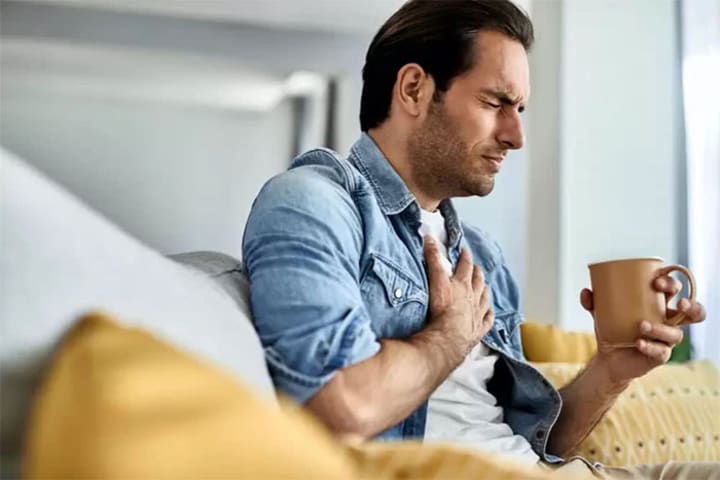
Raise the head of the bed
If you sit or do light exercise 30 minutes to 1 hour after eating, you still experience heartburn symptoms when lying down. At this time, you should raise the head of the bed about 10-15 cm off the ground.
When your upper body is elevated, gravity makes it less likely that stomach contents will reflux into your esophagus. It’s important to note that you should actually elevate the bed, not just your head. Adding extra pillows will cause your body to be in a curved position, which can increase pressure on your abdomen and worsen heartburn and reflux symptoms.
You can elevate your bed by placing 4 to 6 inch wooden blocks securely under the two bedposts at the head of the bed. These blocks can also be inserted between the mattress and box spring to elevate your body from the waist up.
Try not to bend down
Your posture can also contribute to heartburn. If you slouch, try sitting up straighter. A 2021 case study found that long-term posture problems can contribute to acid reflux. In the study, correcting poor posture eliminated reflux symptoms.
Pay attention to food in meals
A high-fat diet can also prolong and worsen heartburn symptoms, so meals that are low in fat or contain healthy fats are ideal.
You should limit eating processed and greasy foods such as fried foods, pizza, fatty meats such as bacon and sausages, cheese, etc. At the same time, you should avoid spicy and sour foods such as citrus fruits.
Instead, you should choose foods rich in fiber (whole grains, sweet potatoes, carrots, asparagus, broccoli, etc.), alkaline foods (bananas, melons, cauliflower, nuts), and foods high in water (celery, cucumbers, lettuce, watermelon).
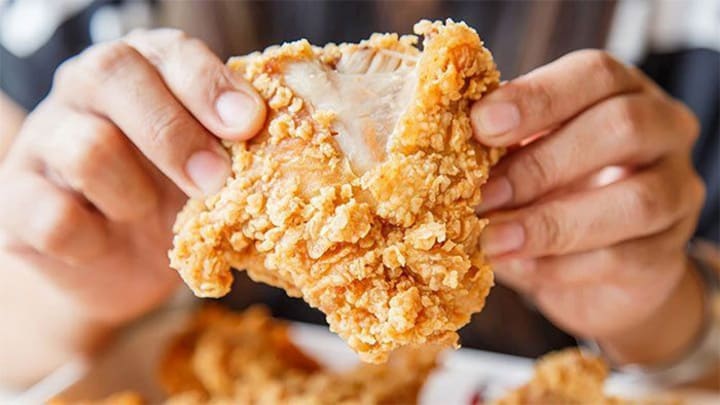
Drink ginger tea
Ginger tea contains gingerol, which can help you digest better after meals, reducing pressure on the lower esophageal sphincter. Delicious and caffeine-free, ginger tea is a great choice after meals to help reduce symptoms of heartburn, nausea, and bloating.
You can buy ready-made ginger tea or crush a fresh ginger branch, boil it in boiling water and add a little sugar if you like and enjoy.
Use of drugs
If heartburn symptoms are severe and cause discomfort, affecting your life such as insomnia, you should use additional medication to control them.
Some of the most common medications used to relieve heartburn include:
Alka-Seltzer (calcium carbonate antacid)
Maalox or Mylanta (aluminum and magnesium antacids)
Rolaid (calcium and magnesium antacid)
More severe cases may require prescription medications, such as H2 blockers and proton pump inhibitors (PPIs), to control or eliminate stomach acid.
In general, when using medication you need to follow the type of medication and instructions from your doctor, do not use medication without instructions.
3. When should I see a doctor?
If your heartburn is severe or occurs frequently, you should see your doctor. In some cases, heartburn symptoms may be caused by gastroesophageal reflux disease (GERD) and may need to be treated with medication.
In addition, heartburn and heart attack can have similar symptoms as chest pain. If you do not have other typical symptoms of the disease, you should see a doctor for advice and to find the cause.
About the Creator
Ken Daklak
Telling stories my heart needs to tell <3 life is a journey, not a competition
If you like what you read, feel free to leave a tip,I would love some feedback
https://s.shopee.vn/pa9mXcwE?share_channel_code=8
Enjoyed the story? Support the Creator.
Subscribe for free to receive all their stories in your feed. You could also pledge your support or give them a one-off tip, letting them know you appreciate their work.




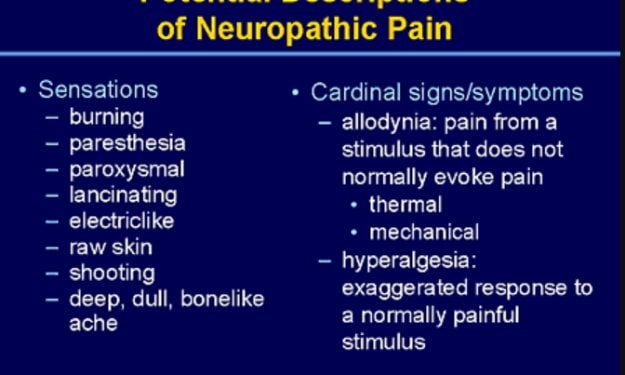

Comments
There are no comments for this story
Be the first to respond and start the conversation.